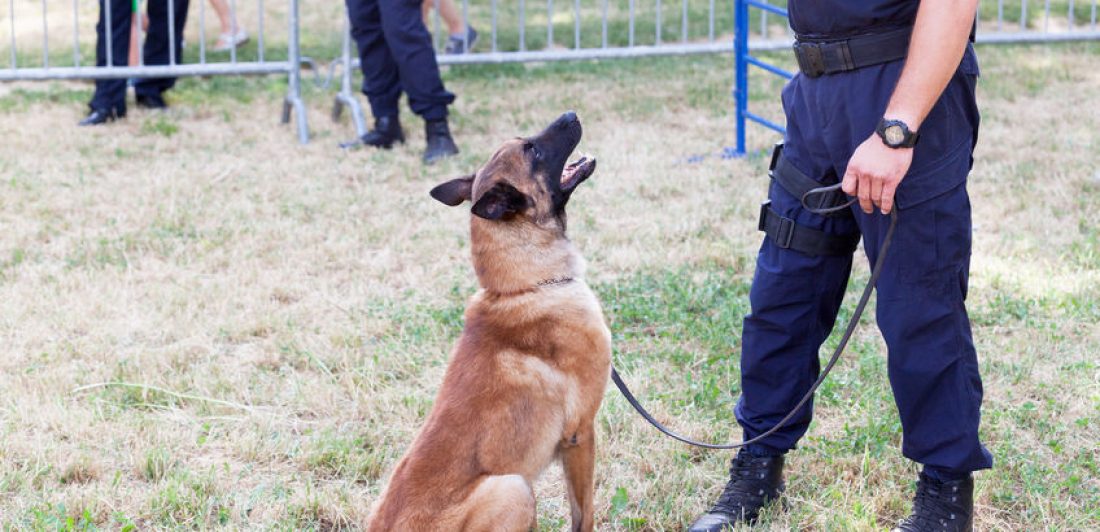The U.S. Constitution’s Fourth Amendment protects citizens from unreasonable searches and seizures. Still, everyday Americans have their rights violated in “unreasonable intrusions by the government.” One type of search often performed by police officers that is an exception to the Fourth Amendment is a search using canine officers.
Over the years, the Supreme Court has interpreted the Fourth Amendment and the use of drug dogs in ways that give officers considerable leeway. However, there are protections in place that can be used to dispute the validity of illegal searches. It is vital to understand your rights when you interact with the police to protect yourself.
How long have police used dogs?
Law enforcement has been using dogs for more than 100 years. However, their prevalence didn’t become commonplace in the United States until the 1970s. Dogs help police track fugitives or missing persons, as well as to detect illegal drugs and explosives.
What are your rights when it comes to K-9 search and seizure?
To search your vehicle or residence, an officer must have probable cause. While drug dogs are standard in American policing, they allow police officers to create probable cause. This includes times in cases when it doesn’t exist.
Many people aren’t aware that they can deny the search if a police officer asks to search their car. If you say yes and consent, it becomes legal for the officer to search your vehicle. However, an officer does not need your consent to allow a drug dog to do a sniff search of the outside perimeter of your car. If the dog alerts as a result of the search, the alert provides probable cause for the police officer to search your vehicle without your consent.
Usually, if the officer doesn’t have a police dog, they will need reasonable suspicion to continue to detain you for an extended period while waiting for the drug dog to arrive at the traffic stop scene. During this period, you have the right to determine if you can leave by asking, “Officer, am I free to go?”
If the officer refuses and detains you, you have the right to remain silent and refuse to consent to any searches. Denying an officer permission to search your vehicle or belongings cannot hurt you or be used against you.
What are the rules for officers using a drug dogs?
Officers do not have free rein to search just because they have a dog. With this in mind, there are specific rules that officers need to follow when they call for a drug dog, including the following:
- The initial stop must happen because the officer has a reasonable suspicion that you are committing a criminal offense, such as a traffic violation, or as a result of their community caretaking duty.
- An officer may not prolong a traffic stop for an unreasonable amount of time to wait for a K-9 to arrive.
What is considered an unreasonable delay is a case by case basis. It would be best to have a great attorney who can analyze your case to determine when a traffic stop has been unreasonably prolonged.
An officer’s traffic stop includes checking the driver’s license, registration, proof of insurance, and running a warrant check. The issue isn’t whether the dog sniff happens before or after the ticket has been issued—it’s whether the wait for the K-9 unreasonably prolongs the traffic stop.
Never consent to a search
When you are pulled over for a traffic violation, it is because the officer suspects that you’re committing a crime. Still, to search your vehicle, an officer will need one of the following:
- Your consent
- A warrant from a judge
- Probable cause
The general rule was laid out in the Supreme Court case of Rodriguez v. United States. Unless police have “reasonable suspicion” of a crime, it is unconstitutional to unreasonably prolong a legal traffic stop to conduct a dog sniff.
Suppose the court finds no reasonable cause that would justify a delay and police officers still delayed your traffic stop, any evidence found could be considered illegally obtained. A criminal defense attorney can argue for that evidence to be suppressed and not allowed to be used against you. Anyone facing a drug charge should contact a criminal defense lawyer as soon as possible. This will allow your attorney to begin building your defense.
How can The Carlson Law Firm Help?
It is important to remember that you are innocent before proven guilty.
If you or a family member believe that your Fourth Amendment right has been violated, contact us today for a free consultation. An experienced criminal attorney will be able to guide you with all the available;e defenses that are relevant to your case.





